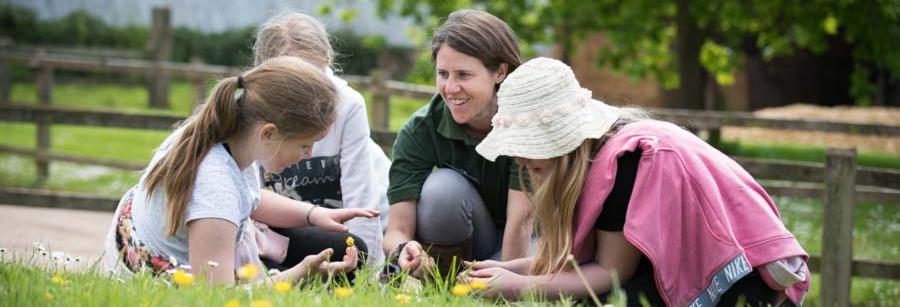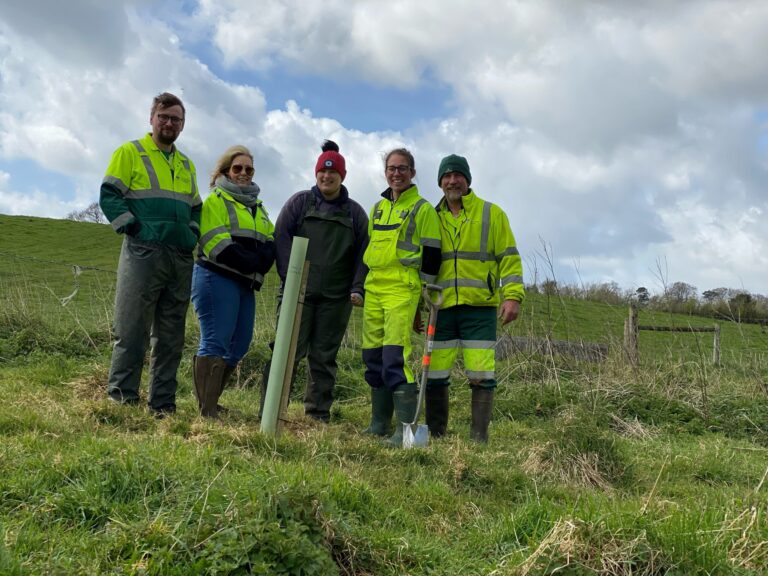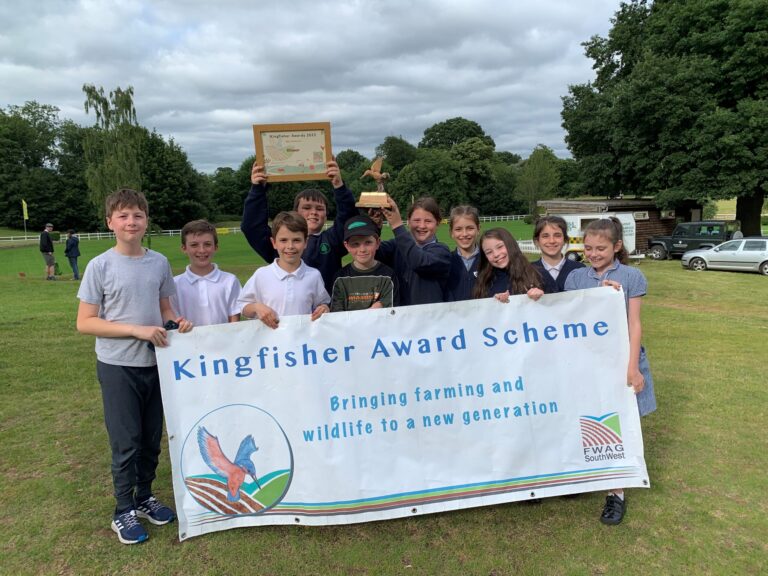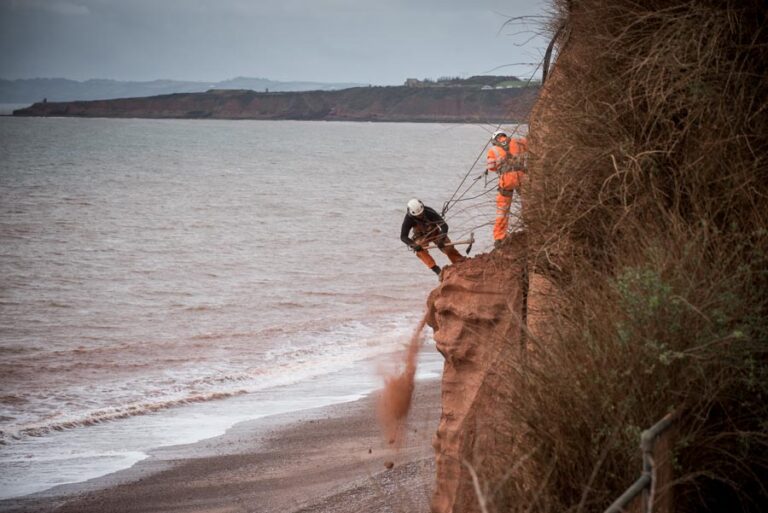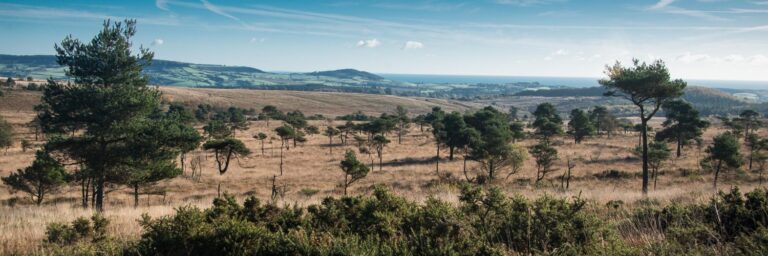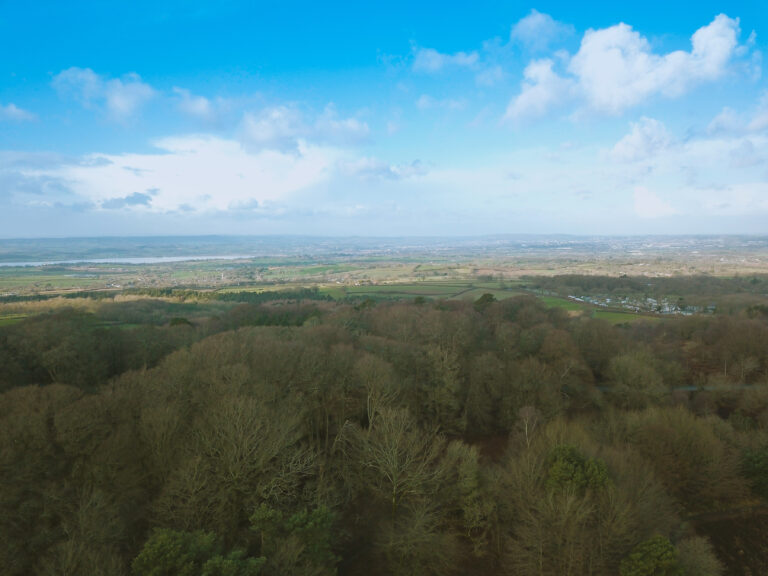“Milk, Muck and Minibeasts” – Vital link between wildlife, farming and food production brought to life for Westcountry school children
The link between earthworms and milk production, what makes farms organic, and the role moths play in pollination are among the many insights gained by 240 East Devon primary school children taking part in this year’s Kingfisher Award Scheme.
Now in its 26th year, the educational farming initiative offers young people across Devon, Cornwall, Somerset and Wiltshire the opportunity to find out about the vital relationship between food production, farming and wildlife through hands-on experiential learning. More than 12,000 children have taken part since its inception.
Over four days this May (21-24) children from Budleigh Salterton, Exmouth, Feniton and Broadclyst primary schools, donned their wellies and took part in a series of workshops to learn about milk, soil and pollinators, exploring the theme “Milk, Muck and Minibeasts”.
East Devon’s event once again took place at Dalditch Farm, an organic dairy farm on the outskirts of Budleigh Salterton owned by Clinton Devon Estates.
Sixty year five children from St Peter’s Church of England Primary School in Budleigh Salterton were among those taking part in the scheme. Henry Lees, 10, said: “I’ve learnt so much already, like how worms help keep air and moisture in the soil which helps the grass grow for the cows. It made me think that all farms should be organic.”
“We can’t live without insects, like worms and moths, so we should take care of them,” said Abbi James, 10, after the field day.
George Stone, 10, added: “I know so much more now about how important insects are to where our food comes from. I loved seeing all the different moths and learning about how they are important pollinators.”
Their teacher Kelly Back, said: “The scheme brings the children’s learning to life. It’s great to see their thirst for knowledge ignite. You can almost see their brains ticking over.”
The farm was one of several around the Westcountry hosting field days as part of the project which was founded by the late Poet Laureate Ted Hughes and friends to support the work of the Farming and Wildlife Advisory Group (FWAG South West).
Following the workshops at Dalditch Farm, which are run each year by staff from the Pebblebed Heaths Conservation Trust and Clinton Devon Estates and a keen band of volunteers, the second part of the scheme involves the children planning and creating project work, inspired by their learning at the farm. The final part is an awards evening at Bicton Arena in July, where the projects will be judged and the winning school presented with a wooden kingfisher trophy, books and prize money.
Kate Ponting, Countryside Learning Officer for Clinton Devon Estates, who organised the East Devon event, explained: “The best thing about the Kingfisher Award is that children are at the centre of the learning throughout. Kingfisher takes nine and 10 year olds into the countryside allowing them to gain new experiences and with the project, for them to focus on what interests them and present it how they want.
“Visiting the farm also gives those children who are normally quiet in the classroom a chance to shine. One teacher said she noticed a boy engaging and answering questions far more during their morning at the farm than he’d normally do in school. The children take ownership of their learning, get to ask all the questions they like and have them answered by our experts, helping them make the really important connections between food, farming and nature.”
See what the children got up to for the 2018 Kingfisher Award in the video below.
[embedyt] https://www.youtube.com/watch?v=HardQEAxWOE[/embedyt]
